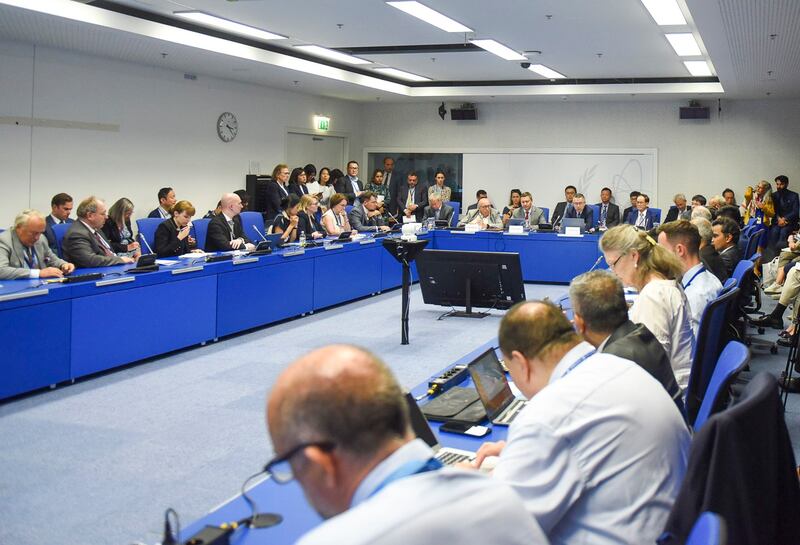The U.S. State Department has approved exemptions from arms-export controls for Australia and the United Kingdom that will allow defense contractors in the two countries to build American military technology without undergoing a lengthy licensing process.
A key part of the AUKUS security deal between the three countries known as "Pillar 2" of the pact, the move is intended to help take pressure off a backlogged U.S. defense industrial base amid concerns that America's rate of military production is falling behind China's.
Related stories
[ US begins review process for key AUKUS pillarOpens in new window ]
[ US needs to share military secrets, Australian diplomat saysOpens in new window ]
[ Democrats question proposed part of AUKUS dealOpens in new window ]
[ Rudd foresees ‘seamless’ AUKUS defense industryOpens in new window ]
Australia and the United Kingdom join Canada as the only countries with exemptions under U.S. laws known as the International Traffic in Arms Regulations, or ITAR, which is intended to stop advanced U.S.-made weaponry from falling into the wrong hands.
The long-awaited decision, which was initially expected in April but delayed by the White House, was unveiled after the State Department said it had assessed revamped Australian and British operational security standards as being on par with those in America.

The State Department informed Congress that the “Australia and UK export control systems are comparable to those of the United States and have implemented a reciprocal export exemption for U.S. entities,” it said on Thursday, paving the way for ITAR exemptions.
“The changes implemented by this rule will maximize innovation and mutually strengthen our three defense industrial bases by facilitating billions of dollars in secure license-free defense trade,” it said in a statement, adding that the change takes effect Sept. 1.
“This effort will enable deeper cooperation among AUKUS partners to advance peace, stability, and security in the Indo-Pacific and beyond,” the statement said. It explained that trilateral cooperation would also enable “innovation” in military production “at a pace of relevance.”
However, the statement noted that the ITAR exemptions will not be absolute and that certain technologies will still require Australian and British contractors to undergo the existing licensing processes.
Espionage concerns
The exemptions were opposed by some leading Democrats in Congress, who argued that Australia has had well-publicized problems with Chinese espionage and that lowering the regulatory burden could lead to leaks of designs for sensitive American weaponry.
The State Department also initially opposed the exemptions, which instead suggested a streamlined licensing process that would see bulk approvals of requests made by Australian and British companies.
However, their passage was spearheaded by Kurt Campbell, who was an architect of AUKUS during his time as U.S. President Joe Biden's "Asia czar" on the White House National Security Council and who earlier this year was approved as U.S. deputy secretary of state.
The second pillar of AUKUS – the first covers a deal to provide Australia with nuclear-powered submarines – is part of a wider U.S. initiative to counter the growing military influence of China. Beijing, for its part, has slammed AUKUS as an aggressive alliance against it.

But in Washington the trilateral pact has proved popular.
Rep. Michael McCaul, a Republican from Texas who serves as chairman of the House Foreign Relations Committee, welcomed the ITAR exemptions but described them as “long overdue.”
In a statement issued from Sydney, where McCaul was touting cooperation between the United States and Australia on producing hypersonic missiles, he said the decision would "remove significant red tape and administrative burdens" for U.S. defense companies.
However, McCaul said there were still “too many items that are critical to fully implementing AUKUS that are not included in this exemption,” and called for sweeping exemptions for “two of our closest allies.”
“Until the Excluded Technologies List is limited to only a handful of items — as Congress intended — big government regulation will continue to hamper this crucial alliance’s ability to truly deter a conflict in the Indo-Pacific,” McCaul said in the statement.
